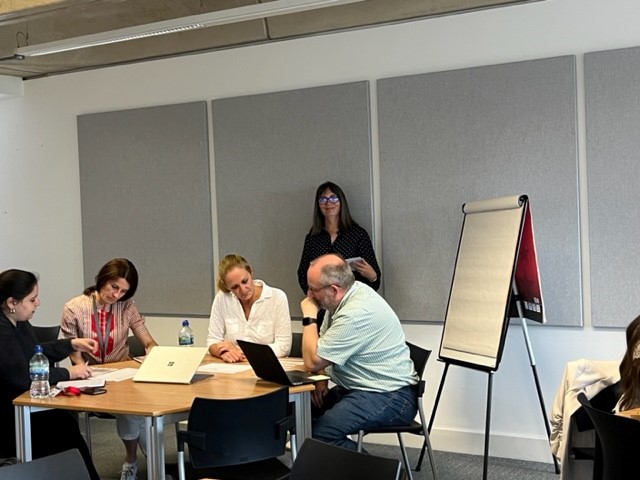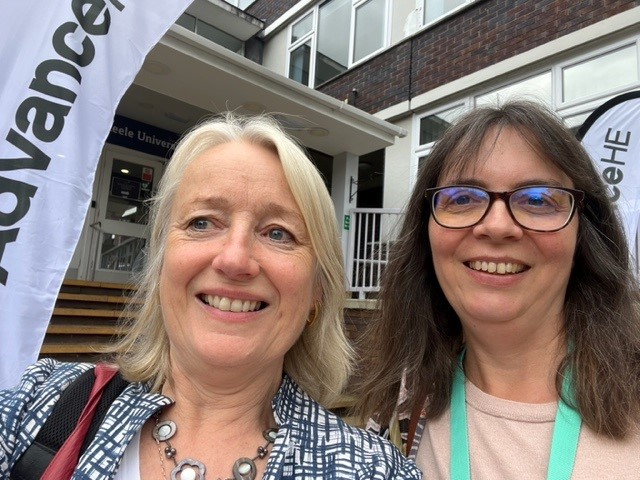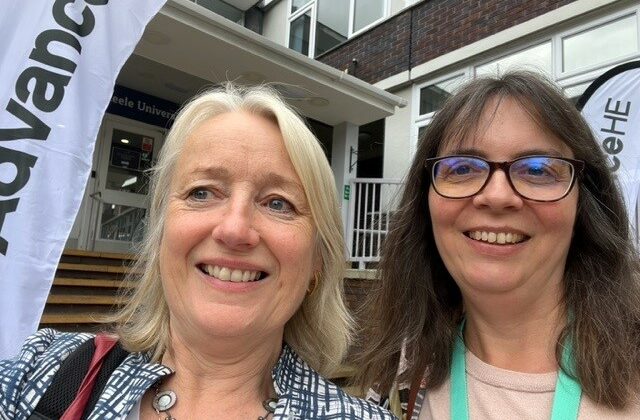“Academia isn’t for everyone!” I was warned by my business associates when I decided to become a full-time academic in 2016, after spending decades working outside of the enclaves of universities and research facilities. In the past, industry professionals had little to offer to institutions driven by grant acquisitions and research publications. However, in recent years, there has been an increasing emphasis being placed on producing graduates with relevant work skills. Academic institutions have become more open to receiving these professionals with years of real-world experience to bring practical innovation into university courses.
In my practice as a business consultant, I was often chosen to be a member of clients’ recruitment panels to provide an outsider’s perspective to the assessment of candidates. There were common grievances voiced by clients that new graduates today lacked critical thinking skills, attention to details, interpersonal competencies and ownership attitude. The Malaysian Higher Education Ministry has also urged higher education institutions to change the process of teaching and learning to produce holistic, balanced and entrepreneurial graduates with life and career skills, who could adapt and fill in jobs ‘that are yet to exist’ in the 4th industrial revolution (4IR). With opportunities on the rise and my passion to contribute back to the community, I took a leap of faith from client meetings and corporate environment to meeting students and adapting to a university’s rhythm.
I have to admit it was a culture shock when I started my job as an associate professor at the Henley Business School in the Malaysian campus. I knew the working culture and work values would be different but experiencing them required me to make connections between what I knew. I was so used to rushing around everywhere as a consultant and the rhythm in the university was a major source of frustration for me right from the start. I have since accepted the slower rhythm but not a convert, as yet. Another peculiar difference is demand expectations. In business, I needed to have the answers all the time and be answerable every minute, meeting the briefs on time and on budget. My time belonged to somebody else and I was never really left alone. The demand is different in academia; at least that was what I was told and had observed. I am allowed to not have the definite answer. I get time to reflect. I can explore and think about it first. However, I also get to be on-call for students, which I find quite enjoyable as students are why I am here after all. A further intriguing experience is with project demands. The fast-paced, productivity-driven corporate environment leaves little time for eureka moments that come from repeated failure with commercial projects. In the business world, an approach that does not work or that produces sub-par results is quickly discarded. That is often frustrating. On the other hand, in academia, there is time, freedom and support to ask the hard questions, make mistakes and come to inconclusive results. A failed experiment or a faulty hypothesis does not mean the end of a research project; it could still contribute to statistically significant findings. That is elation to intellectual curious researchers.
As a business consultant, one activity that I looked forward to was invitations to provide training in corporations. Many of my consultancy associates shared the same desire. I have the opportunity to train managers and executives in many multinational corporations and public organizations over the years. When I became an academic, I thought I was well-equipped for teaching with my training experiences. However, I soon realized that training is not quite the same as teaching. Teaching seeks to impart knowledge and provide information. Teachers are expected to have the latest subject-matter knowledge and an understanding of pedagogical processes to fill the knowledge gap in students and enable them to achieve the intended learning outcomes. A trainer, on the other hand, has narrow set of items to cover during training sessions. The focus is less on having a broad knowledge base for the subjects, and more on the behavioral aspects of the trainees. The aim is to develop certain competencies. For instance, with applied management subjects, it is possible to teach someone about the theory of conflicts management, but that knowledge will not make them a good conflict manager. Specific, practical and applied training is necessary to use abstract knowledge to learn or master a skill. A common feedback from employers about university graduates is that they do not have the practical skills that are necessary to thrive in the workplace. Although many universities and institutions are excellent at teaching, the training component is found in practice to either fall short or is non-existent.
It became clear to me that both teaching and training should be complementary to meet the challenges of educational transformation for the 4IR. I am a certified professional trainer. However, I needed to learn how to be a professional teacher. Working in partnership with the Centre for Quality and Support Development (CQSD) and the dedicated mentoring by my colleagues at the Centre was invaluable to my achievement so far with teaching and learning. The acknowledgement of my effort with the HEA Senior Fellowship award recently was totally unexpected when I started teaching in 2016. However, it was the journey to certification that was most rewarding as it has engendered enthusiasm in me and provided me with new insights and new meaning to my past and current work as a facilitator of learning for the future generation of leaders. The recognition has provided me with a conduit to move forward in the world of teaching and learning.
To conclude, as with many other universities, the University of Reading has adopted the strategy of curriculum internationalisation to prepare our graduates for employment in the global economy. Internationalisation of the curriculum is the incorporation of an international and intercultural dimension into the preparation, delivery and outcomes of a program of study (Leask, 2009). However, as advocated by Zimitat (2008), ‘internationalizing curricula is not just about content, it also requires changes in pedagogy to encourage students to develop critical skills to understand forces shaping their discipline and challenge accepted viewpoints’. Here, teachers play the key leading role. As reported in the 3rd global survey report by the International Association of Universities (IAU), ‘the interest, capacity and involvement of faculty members appears to act as a major barrier to moving forward’ (Egron-Polak et al, 2010). This sharing of my personal adventure could perhaps provide some insights and add to the rich picture for colleagues and peers to have a better understanding of the motivations and challenges experienced by faculty moving between industry and academia. The support for these faculty members could then be more targeted, their competencies and energy better harnessed to build internationalization knowledge and readiness for the institution to reach the internationalization goals. In line with the UKPSF professional values of inclusiveness and respect for diverse community, I wish to end with a popular quote by a bestselling author, the late Steven R. Covey, ‘strength lies in differences, not in similarities’.
References
Egron-Polak, E., Hudson, R., Gacel-Avila, J., & International Association of Universities. (2010). Internationalization of higher education: Global trends, regional perspectives: IAU 3rd global survey report. Paris: International Association of Universities, IAU (pp. 77-78).
Leask, B. (2009) Using formal and informal curricula to improve interactions between home and international students. Journal of Studies in International Education, Vol. 13, No. 2, 205-221.
Zimitat, C. (2008). Student Perceptions of the Internationalisation of the Curriculum. Chapter 13. In L. Dunn and M. Wallace (Eds), Teaching in Transnational Higher Education (pp. 135-147), London: Routledge.



 A review of existing University of Reading assessment advice and two staff workshops at Henley Business School to inform a new marker’s guide on fair marking and managing Academic Misconduct. The marker’s guide will specifically cover what to look out for and when and how to use Turnitin Originality Reports. The guide can also be used at staff development workshops.
A review of existing University of Reading assessment advice and two staff workshops at Henley Business School to inform a new marker’s guide on fair marking and managing Academic Misconduct. The marker’s guide will specifically cover what to look out for and when and how to use Turnitin Originality Reports. The guide can also be used at staff development workshops. We designed a simple game (called the REFinGame) which was aligned with the course material and launched it on Facebook. This approach, which could easily be applied to other discipline areas, was successfully used to enhance student learning and engagement with modules related to real estate finance.
We designed a simple game (called the REFinGame) which was aligned with the course material and launched it on Facebook. This approach, which could easily be applied to other discipline areas, was successfully used to enhance student learning and engagement with modules related to real estate finance.

 The core Part Two undergraduate module, International Business Management and Strategy (MM272), was redesigned on two pillars: teamwork, and social media (Facebook). Formal student evaluations were high and feedback from focus groups with students was very positive – students found the use of Facebook effective and enjoyable, and students felt fully engaged.
The core Part Two undergraduate module, International Business Management and Strategy (MM272), was redesigned on two pillars: teamwork, and social media (Facebook). Formal student evaluations were high and feedback from focus groups with students was very positive – students found the use of Facebook effective and enjoyable, and students felt fully engaged.